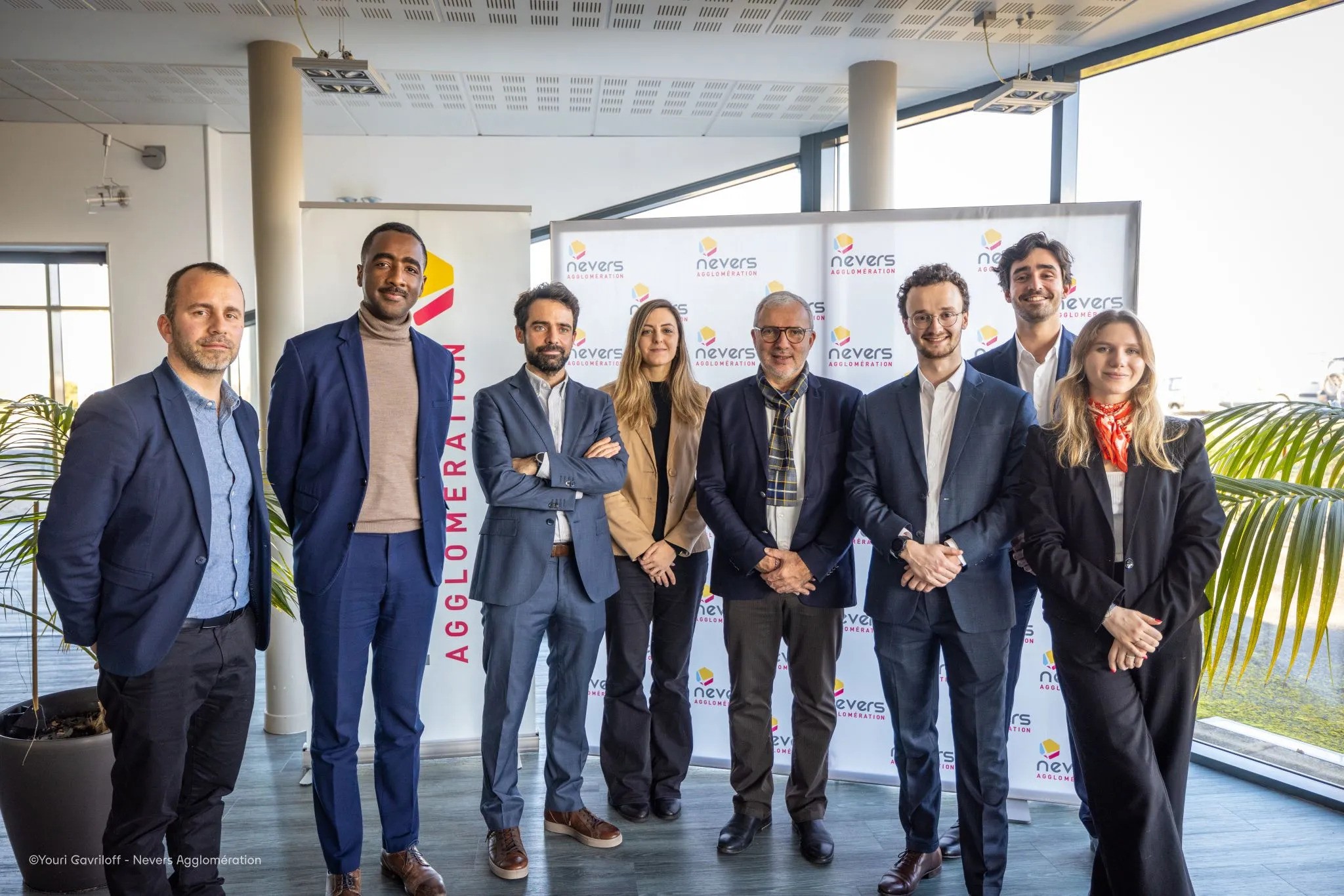EIT Urban Mobility and AIT propel mobility startups and innovations

EU-Propel: A collaborative partnership to accelerate mobility startups and innovations tackling niche urban challenges across France.
The EU-Propel project was launched as a strategic collaborative partnership and project between EIT Urban Mobility and the French Innovation Agency for Transport (AIT – Agence de l’Innovation pour les Transports), with the aim of supporting AIT in scaling its existing open innovation programme Propulse. Designed to combat urban car-dependency, the initiative focused on piloting and validating three pioneering mobility solutions across six French metropolitan areas. These six areas included two existing EIT Urban Mobility leading cities – Métropole du Grand Paris and Toulouse Métropole, new member Nevers Agglomération, plus Métropole Aix Marseille Provence, Métropole Rouen Normandie, and Ville de Saclay.
EU-Propel, led by AIT, brought together three graduate startups from the Propulse open innovation programme. The overarching goal was to foster the scalability, replicability, and internationalisation of these solutions by enhancing their technological readiness. Each solution was deployed in real-world environments for a minimum of three months. During the deployments, the project engaged end-users, clients, and citizens to validate the solutions’ effectiveness and potential for scalability in other cities across France and beyond. The project the three startups were supported on a day-to-day basis by project partner BAX Innovation. Bax Innovation also performed a readiness level analysis of the proposed solutions and analysed the project learnings to draw conclusions for the collaboration roadmap between the AIT and EIT Urban Mobility.
DEKI
DEKI piloted its SaaS DEK’impact and OPTIDEK software tools for optimising urban logistics across Metropole areas of Aix Marseille Provence, Grand Paris, and Toulouse. These tools use algorithms that factor in vehicle type, load capacity, goods classification, and logistics points to optimise routes, reduce fuel consumption, and minimise working time and vehicle usage. The approach enables last-mile delivery operations that are free from greenhouse gas emissions, traffic congestion, and pollutants.
In Métropole du Grand Paris the project focused on the transportation of commercial goods and its environmental footprint. They did this by optimising carrier operations and facilitating access to green delivery solutions. The project implemented a new transport plan for a carrier in central Paris for over 1,420 deliveries. The demonstration focused on transitioning from a thermal heavy-duty vehicle travelling from a depot in Lisses to Paris, to a new model involving a peri-urban hub and emission-free vehicles for the last mile.
In Toulouse Métropole, the project focused on decarbonisation and optimisation by defining a new urban logistics model using peri-urban hubs. The pilot analysed a sample of 6,200 deliveries over one week period made by a fleet of 25 mixed-energy vehicles. This established a precise impact assessment by vehicle type, route and postcode. It then assessed the impact of transferring deliveries from thermal to electric vehicles for the road haulier based on 535 deliveries.
Overall, DEKI’s deployments demonstrated an impressive 80% reduction in CO₂ emissions, a 40% decrease in kilometres driven, and a 50% reduction in time spent by delivery vehicles on roads.
1km à pied
The startup 1km à pied collaborated with the national postal service company, La Poste Groupe, in Métropole Rouen Normandie to reduce unnecessary car commutes by relocating employees to workplaces closer to home, where possible and desired by the staff member. By streamlining internal mobility processes, the solution enhances work-life balance, increases employee purchasing power, and reduces turnover, absenteeism, and commuting-related CO₂ emissions.
Between November 2024 and May 2025, the pilot assessed commuting patterns for over 6,100 La Poste employees. 56% of employees were identified as having a nearer work site, with 1,950 staff with potential job sites 15+ minutes closer to their residence. The 1km à pied software, an advanced geographical analysis tool, visualises employee commuting distances, times, and mobility preferences. The software and automates internal job matching for reduced commute times and records employee mobility wishes for strategic internal relocations. During the pilot, two employee transfers were successfully implemented, achieving an 87% reduction in average commute time and an estimated annual fuel cost saving of €5,000 (a 94% decrease). The pilot will continue with La Poste through the remainder of 2025.
Ynstant
Addressing the challenge of strong car dependency due to limited public transport, startup Ynstant tested its real-time carpooling solution in Nevers Agglomération and Ville de Saclay. Ynstant worked with local authorities and partners to identify areas with specific mobility needs, such as routes with heavy car traffic or less well-served communes. The app offers a reliable and flexible alternative mobility option that reduces individual CO₂ emissions, enhances vehicle utilisation, and lowers overall fuel consumption and environmental impact. During the pilot several new features were tested including a new kilometre-based pricing model, a fraud detection system and the ability to accommodate planned trips several days in advance.
The Ynstant solution is focused on complementing existing public transport and reducing low occupancy of cars. The solution helps to reduce transport costs through cost-sharing and strengthening local economies by promoting community-level interaction. In Nevers Agglomération, more than 2,700 trips were completed with 1,403 active users. In Ville de Saclay and Jouy-en-Josas, 2,551 shared trips were recorded, involving 837 users.
Collaborative partnerships for scaling innovation
The EU-Propel project has demonstrated the power of collaborative innovation in addressing complex urban mobility challenges.
The AIT welcomes its partnership with EIT Urban Mobility, which allows it to enhance its service offering towards particularly promising innovators
Estelle Sturtzer, Head of the Innovation Centre, Directorate General for Infrastructure, Transport and Mobility
By piloting cutting-edge solutions across diverse French metropolitan areas, the initiative not only validated the effectiveness of these technologies but also laid the groundwork for their broader adoption and international scaling. With measurable reductions in emissions and improved efficiency, EU-Propel represents a significant step forward in creating more sustainable, resilient, and people-centric urban transport systems across Europe.


 Share this page
Share this page


